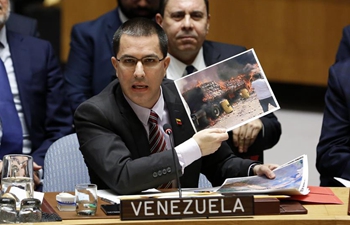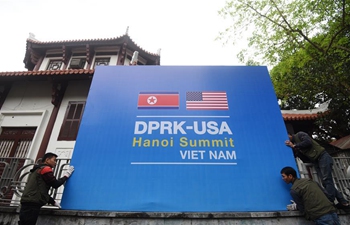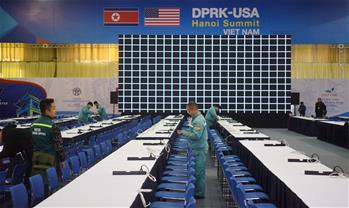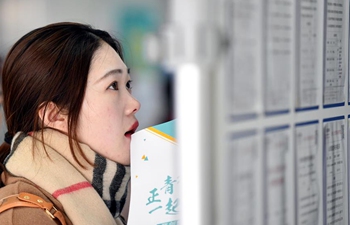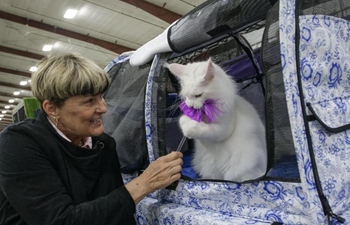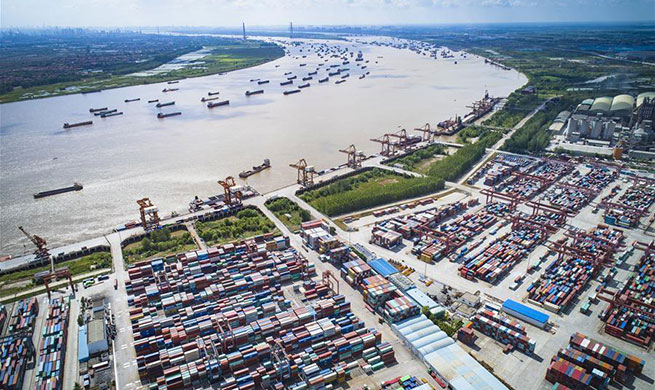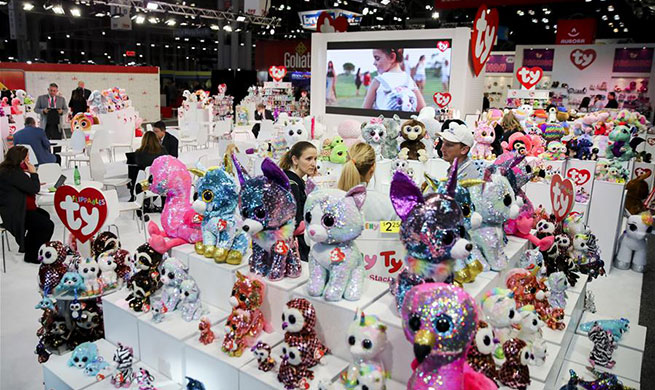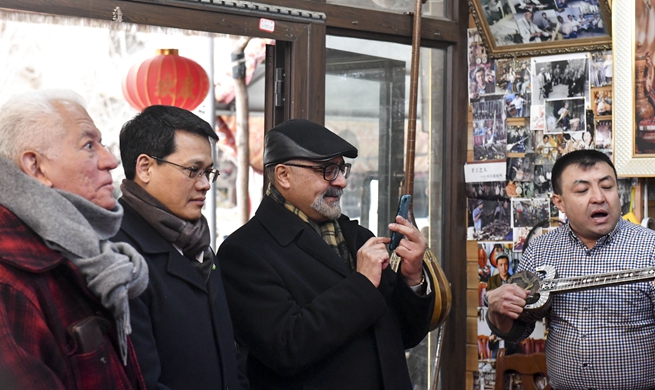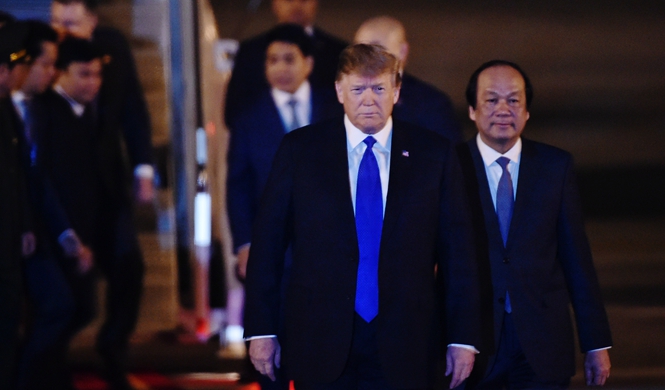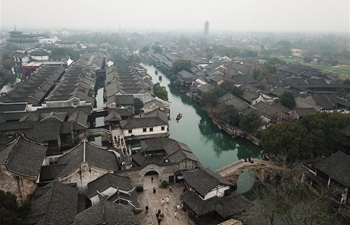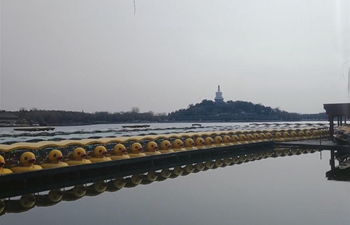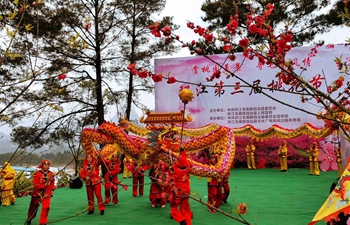BARCELONA, Spain, Feb. 26 (Xinhua) -- Huawei Rotating Chairman Guo Ping reiterated that his company does not "do bad things" when he took the stage at MWC 2019, or Mobile World Congress, in Barcelona on Tuesday.
"As vendors, we don't operate carrier networks, and we don't own carrier data ... What we promise, is that we don't do anything bad: we don't do bad things," Guo said in a keynote speech at the information industry's highest-profile gathering.
REAFFIRMING COMMITMENT
Huawei, based in the southern Chinese city of Shenzhen, is a leading international vendor of telecoms equipments, which are procured by carriers that provide fixed and mobile connections for consumers and businesses.
There was mounting pressure from the U.S. on Western governments not to use the Chinese telecoms company's technology in the construction of their upcoming 5G networks.
"For technology providers, our responsibility is to comply with standards and build secure equipment. With 5G, we have made a lot of progress over 4G, and we can proudly say that 5G is safer than 4G," Guo said.
5G and the ultra-high connection speeds it offers will be vital for the development of the Internet of Things (IoT), the digital economy and autonomous and connected cars.
"To build a system that we all can trust, we need aligned responsibility, unified standards and clear regulations," he said.
He flatly rejected claims from the U.S. government that Huawei had broken intellectual property rules or was involved in espionage.
The U.S. government is reportedly seeking to ban Huawei from supplying infrastructure for its 5G networks, but Guo Ping had a clear message for other countries considering making the same decision.
"Let me say this as clear as possible: Huawei has not and will never plant backdoors. And we will never allow anyone to do so in our equipment. We take this responsibility very seriously," Guo said.
"The U.S. security accusation on our 5G has no evidence -- nothing. ... So, for the best technology and greater security, choose Huawei. Please choose Huawei, thank you," he said.
3RD-PARTY ASSURANCE TO CYBER SECURITY
Guo also called for unified standards and aligned responsibilities in terms of security.
NESAS "is a very good idea", Guo said, referring to the Network Equipment Security Assurance Scheme, a voluntary scheme defined for the mobile industry.
NESAS is jointly defined by 3GPP, which results from collaboration between groups of telecoms standard associations, and GSMA, a body representing global carriers and host of the MWC expo.
"In fact, 3GPP's security standards were created with the support of many government security agencies. These agencies have strong capabilities to verify 5G security," Guo said, adding that "I would recommend extending NESAS to the world. Let the experts decide whether networks are safe or not."
Vincent Pang, president of Huawei's Western Europe region, also spoke to the press about the security issue, arguing that his company "hasn't had a single security incident in the 15 years we have been in Europe".
He said the Chinese government had "never" asked for Huawei to "install backdoors" into its technology, and stressed that the company knows that "the 5G rollout requires the highest levels of confidence, but it is a technical challenge, not a political one".




